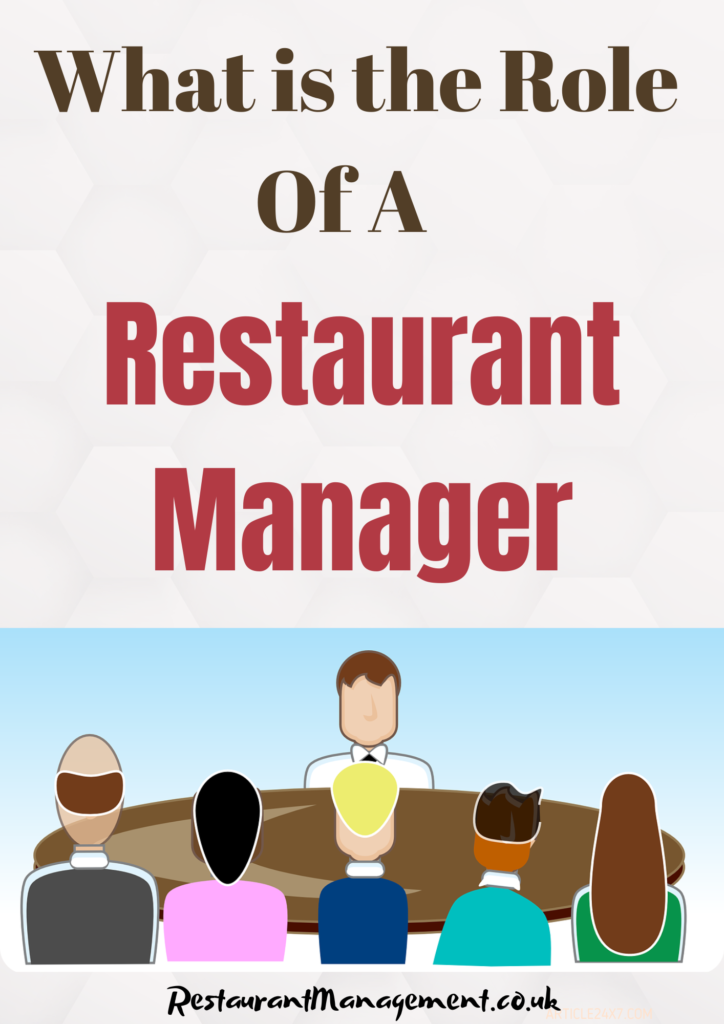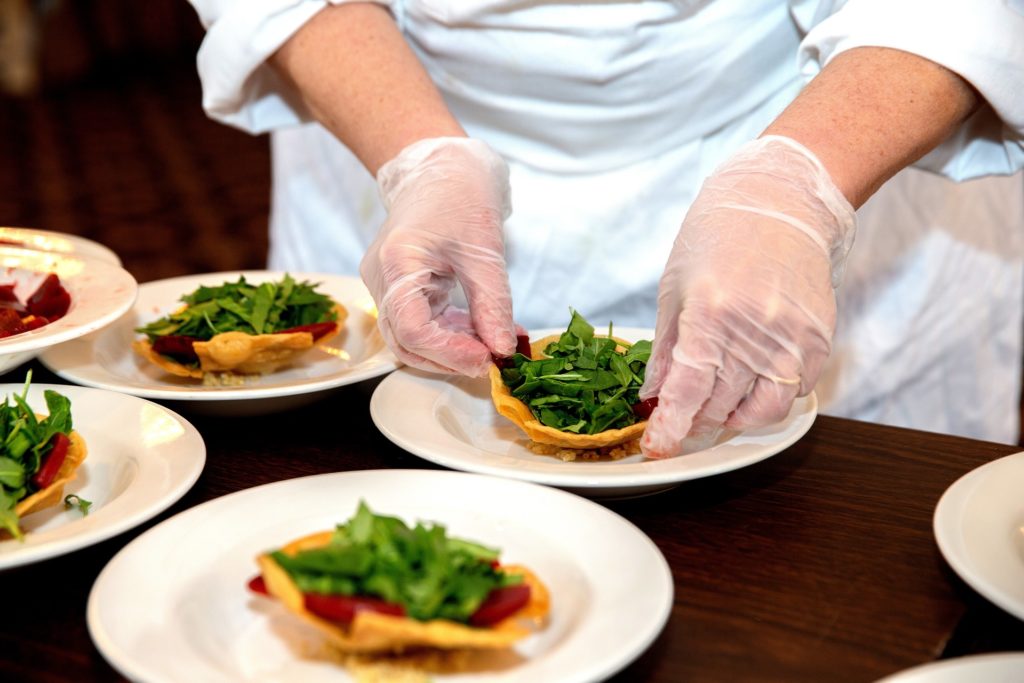Roles of a Restaurant Manager
Are you curious about the role of a restaurant manager? Are you a foodie who’s always wondered what it takes to run a restaurant? Or maybe you’re a hospitality industry enthusiast looking to explore career options. Whatever the case, the role of a restaurant manager is a crucial one that can make or break a restaurant’s success.
As the mastermind behind the scenes, a restaurant manager is responsible for overseeing everything from staff management to customer satisfaction. They are the driving force that keeps everything running smoothly and ensures that diners have a memorable experience.
In this article, we’re going to take a deep dive into the world of restaurant management. We’ll explore the essential skills required to succeed in this field, the typical day-to-day responsibilities of a restaurant manager, and the qualifications needed to become one. Whether you’re a seasoned pro or just starting your journey, you’ll find valuable insights and information to help you better understand the critical role that restaurant managers play in the food-service industry. So, let’s get started!

What is the Role of a Restaurant Manager?
Managing the Restaurant Staff
One of the main roles of a restaurant manager is managing the staff. This includes hiring and training new employees, scheduling shifts, and ensuring that the staff is following all safety and hygiene protocols. A restaurant manager also needs to make sure that the staff is working efficiently and effectively, and that everyone is working together as a team.
Hiring and Training
A restaurant manager is responsible for hiring new employees, which includes advertising job vacancies, interviewing candidates, and selecting the best fit for the position. Once new employees are hired, the manager is also responsible for training them, so they understand the restaurant’s standards and procedures.
Scheduling Shifts
Another important responsibility of a restaurant manager is scheduling shifts. They need to ensure that there is always enough staff on hand to provide excellent customer service, but not too many staff members so it becomes inefficient. The manager also needs to make sure that the staff’s working hours comply with labour laws and that they get enough breaks during their shifts.
Ensuring Safety and Hygiene Protocols are Followed
A restaurant manager needs to ensure that all staff members are following the safety and hygiene protocols. This includes regular hand washing, using gloves and hairnets, and following food handling procedures. The manager also needs to ensure that all equipment and utensils are cleaned and sanitized regularly.
Ensuring Customer Satisfaction
Another crucial role of a restaurant manager is to ensure customer satisfaction. They need to make sure that customers are happy with their experience, from the food quality to the service they receive. A happy customer is likely to return and recommend the restaurant to others, which is crucial for the restaurant’s success.
Monitoring the Quality of Food and Drinks
A restaurant manager needs to monitor the quality of the food and drinks served in the restaurant. They need to ensure that the food is cooked properly, and the drinks are mixed correctly. The manager also needs to make sure that the ingredients used are fresh and of high quality.
Ensuring the Service is Top-Notch
A restaurant manager needs to ensure that the service provided to customers is top-notch. They need to ensure that the staff is friendly, attentive, and knowledgeable about the menu. The manager also needs to ensure that any complaints or concerns from customers are addressed promptly.

Managing Finances
A restaurant manager needs to manage the restaurant’s finances, including budgeting, cost control, and financial reporting. They need to ensure that the restaurant is profitable and that expenses are kept under control.
Budgeting
A restaurant manager needs to create and manage the restaurant’s budget. They need to ensure that expenses are kept under control and that revenue is maximized. The manager also needs to make sure that there is enough money to cover payroll, rent, utilities, and other expenses.
Creating and Managing Menus
A restaurant manager may also be responsible for creating and managing the restaurant’s menu. This involves selecting dishes, pricing items appropriately, and ensuring that the menu is updated regularly to reflect seasonal changes or customer preferences.
Collaborating with Chefs
To create a menu that appeals to customers and meets the restaurant’s financial goals, a restaurant manager often collaborates with the head chef or kitchen staff. They may discuss ideas for new dishes, taste-test menu items, and provide feedback on presentation or ingredients.
Ensuring Menu Consistency
Once a menu is created, a restaurant manager must ensure that the dishes are consistent in terms of portion sizes, ingredients, and quality. They may also monitor customer feedback to determine which dishes are popular and which need improvement.
Marketing and Promotion
A restaurant manager may also be responsible for marketing and promoting the restaurant. This involves creating advertising campaigns, managing social media accounts, and building relationships with local media outlets to generate positive press.
Developing Advertising Strategies
To attract customers and increase revenue, a restaurant manager may develop advertising strategies such as print ads, online ads, or billboards. They may also work with a marketing agency or freelance graphic designer to create eye-catching visuals.
Managing Social Media Accounts
In today’s digital age, having a strong social media presence is crucial for restaurants. A restaurant manager may be responsible for managing the restaurant’s social media accounts, posting updates, engaging with customers, and responding to feedback.
Related articles:
Restaurant Management Tips For Success
Restaurant Management Mistakes And How To Avoid Them
Restaurant Management Strategies
Restaurant Management What Every New Manager Needs To Know

Handling Administrative Tasks
A restaurant manager may also handle various administrative tasks such as ordering supplies, managing inventory, and handling payroll.
Ordering Supplies
To ensure that the restaurant has all the necessary supplies to operate, a restaurant manager may be responsible for ordering items such as food, beverages, cleaning supplies, and kitchen equipment.
Managing Inventory
A restaurant manager must also manage inventory to ensure that the restaurant has the necessary ingredients and supplies on hand. This involves tracking inventory levels, ordering additional items when necessary, and monitoring waste to reduce costs.
Handling Payroll
A restaurant manager is responsible for handling payroll for all employees, ensuring that everyone is paid accurately and on time. They may also be responsible for handling taxes and other financial paperwork related to payroll.
FAQs
What qualifications do you need to become a restaurant manager in the UK?
To become a restaurant manager in the UK, you typically need a combination of education and experience. A high school diploma or equivalent is usually required, but some employers may prefer candidates with a bachelor’s degree in hospitality management or a related field.
In addition to formal education, experience working in the food service industry is also important. Many restaurant managers start in entry-level positions such as servers or bartenders and work their way up through the ranks.
Other qualifications that may be helpful for a restaurant manager in the UK include:
- Food safety and hygiene certifications.
- Knowledge of local and national labour laws and regulations.
- Familiarity with financial management and budgeting principles.
- Strong communication and leadership skills.
Ultimately, the qualifications needed to become a restaurant manager in the UK will depend on the specific employer and the type of restaurant. However, having a combination of education and experience, as well as relevant certifications and skills, can help increase your chances of landing a restaurant management position.
What skills are required to be a successful restaurant manager?
A successful restaurant manager should have excellent communication and leadership skills, as well as the ability to multitask and problem-solve. They should also have a strong understanding of food and beverage service, as well as customer service and financial management.
If you’re dreaming of becoming a successful restaurant manager, you need to have some essential skills under your belt. First and foremost, you should be a master communicator and a great leader. You’ll need to juggle multiple tasks and keep a cool head under pressure while resolving issues.
In addition to having excellent people skills, you must also have a good understanding of food and beverage service, customer service, and financial management. You’ll be responsible for creating an unforgettable dining experience that keeps customers coming back for more, so you need to be passionate about delivering top-notch service.
Being a successful restaurant manager requires a lot of hard work and dedication, but it can be an incredibly rewarding career path for those who have a knack for managing people and resources. So if you think you have what it takes, get ready to dive in and make your mark in the food service industry!

What is the salary of a restaurant manager in the United Kingdom?
The salary of a restaurant manager in the United Kingdom can vary depending on many factors, including the size and type of restaurant, the location, and the manager’s level of experience and qualifications.
According to data from the UK government, the average salary for a restaurant manager in the country is around £24,000 to £30,000 per year. However, this can vary widely, with salaries ranging from around £18,000 to £40,000 or more per year.
Factors that can influence a restaurant manager’s salary in the UK include:
The type of restaurant: Fine dining restaurants and those located in upscale areas may offer higher salaries than fast food or casual dining establishments.
The location: Salaries may be higher in major cities, particularly in London, where the cost of living is generally higher.
Experience and qualifications: Managers with more experience and relevant qualifications, such as a degree in hospitality management or food safety certifications, may be able to command higher salaries.
It’s worth noting that many restaurant managers also receive additional benefits, such as health insurance, paid time off, and bonuses or commission based on the restaurant’s performance. Overall, while the salary of a restaurant manager in the UK can vary, it can be a rewarding and fulfilling career for those with the right skills and experience.
Conclusion
A restaurant manager plays a critical role in ensuring that a restaurant runs smoothly and profitably. From managing the staff to ensuring customer satisfaction and managing finances, a restaurant manager must. The role of a restaurant manager is multifaceted and requires a combination of education, experience, and skills.
From overseeing day-to-day operations to managing staff, finances, and customer relations, a successful restaurant manager must be able to balance a variety of responsibilities while maintaining a high level of professionalism and efficiency.
While the specific qualifications and salary of a restaurant manager in the United Kingdom can vary, those with a passion for the food service industry and strong leadership skills can find rewarding career opportunities in this field. By staying up-to-date on industry trends, regulations, and best practices, restaurant managers can continue to grow and succeed in their roles while providing exceptional experiences for their customers.
Frequently Asked Questions and Answers
What is a general manager of a restaurant?
A General Manager of a restaurant is the captain of the ship, the conductor of the symphony, and the problem solver all rolled into one. They’re the ones responsible for the overall operations of the restaurant, ensuring it runs like a well-oiled machine. Their duties range from managing staff and customer service to overseeing finances and marketing. In essence, they’re the big-picture folks who keep the restaurant sailing smoothly.
What is the difference between a general manager and a restaurant manager?
The difference between a General Manager and a Restaurant Manager is well, think of it like this: if a restaurant were a football team, the General Manager would be the head coach, while the Restaurant Manager would be one of the assistant coaches. While both roles involve overseeing the day-to-day operations, the General Manager is more concerned with the strategic aspects, like budgeting, long-term planning, and overall performance, whereas the Restaurant Manager is primarily focused on the daily grind, such as staff scheduling, inventory management, and ensuring customer satisfaction.
What are the qualities of a general manager of a restaurant?
As for qualities of a General Manager in the restaurant business, they need to have exceptional communication, leadership, and problem-solving skills. They should be cool under pressure, diplomatic when handling conflicts, and have a knack for financial wizardry. Being a people person is crucial because they’ll be dealing with customers, staff, and suppliers regularly. They need to be adaptable too, as the restaurant industry can throw surprises at you faster than a flaming dessert.
What’s higher than a General Manager in the restaurant hierarchy?
Well, in some large restaurant chains, there might be a Regional Manager or even a Director of Operations who oversees multiple locations. And if you’re dreaming big, you might aim for a career in restaurant ownership or become a top-level executive in a restaurant corporation. But remember, no matter how high you climb the ladder, it’s always essential to keep your passion for food and customer service alive!


